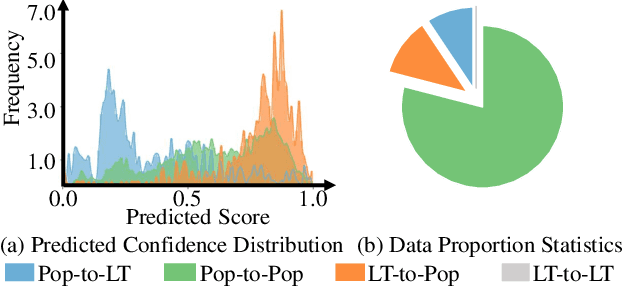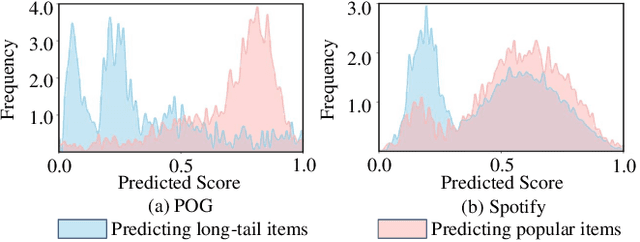Headache to Overstock? Promoting Long-tail Items through Debiased Product Bundling
Paper and Code
Nov 28, 2024



Product bundling aims to organize a set of thematically related items into a combined bundle for shipment facilitation and item promotion. To increase the exposure of fresh or overstocked products, sellers typically bundle these items with popular products for inventory clearance. This specific task can be formulated as a long-tail product bundling scenario, which leverages the user-item interactions to define the popularity of each item. The inherent popularity bias in the pre-extracted user feedback features and the insufficient utilization of other popularity-independent knowledge may force the conventional bundling methods to find more popular items, thereby struggling with this long-tail bundling scenario. Through intuitive and empirical analysis, we navigate the core solution for this challenge, which is maximally mining the popularity-free features and effectively incorporating them into the bundling process. To achieve this, we propose a Distilled Modality-Oriented Knowledge Transfer framework (DieT) to effectively counter the popularity bias misintroduced by the user feedback features and adhere to the original intent behind the real-world bundling behaviors. Specifically, DieT first proposes the Popularity-free Collaborative Distribution Modeling module (PCD) to capture the popularity-independent information from the bundle-item view, which is proven most effective in the long-tail bundling scenario to enable the directional information transfer. With the tailored Unbiased Bundle-aware Knowledge Transferring module (UBT), DieT can highlight the significance of popularity-free features while mitigating the negative effects of user feedback features in the long-tail scenario via the knowledge distillation paradigm. Extensive experiments on two real-world datasets demonstrate the superiority of DieT over a list of SOTA methods in the long-tail bundling scenario.
 Add to Chrome
Add to Chrome Add to Firefox
Add to Firefox Add to Edge
Add to Edge